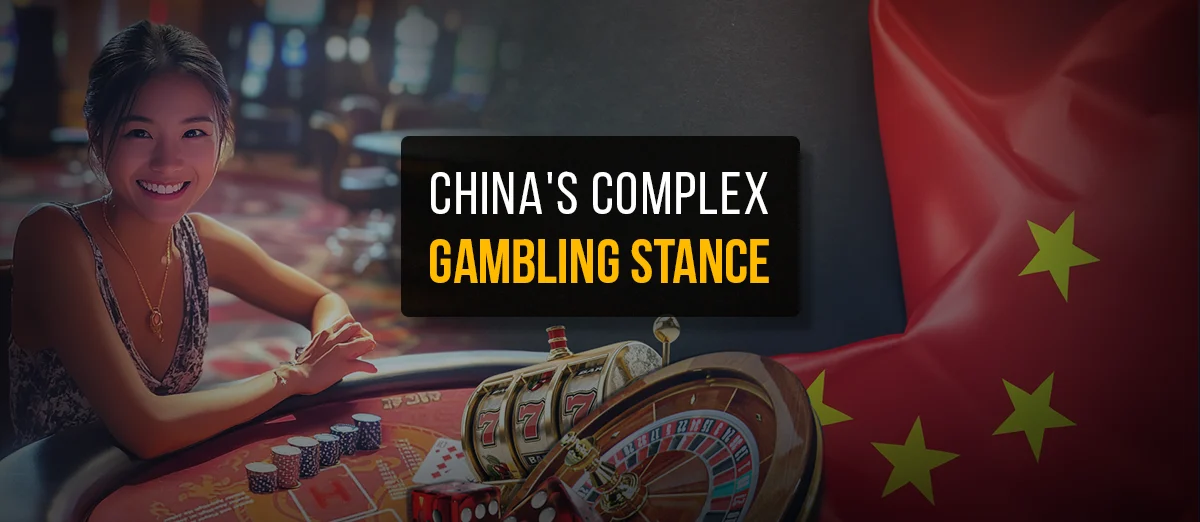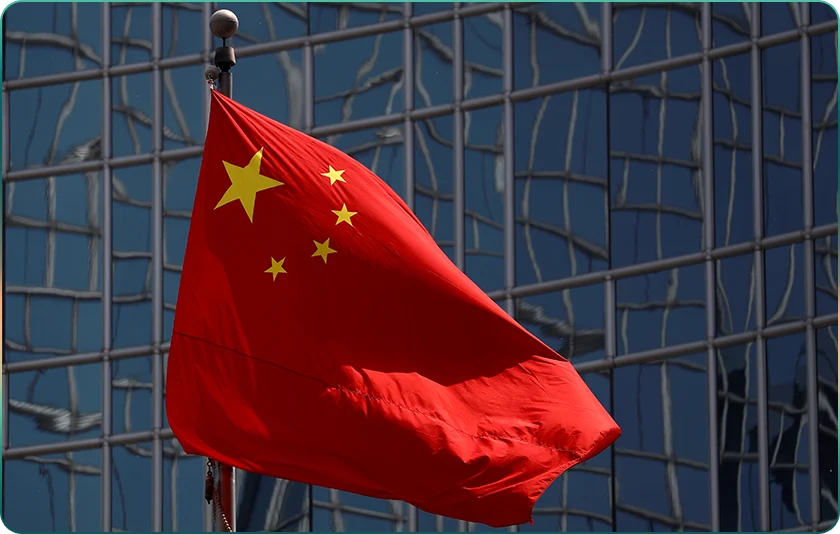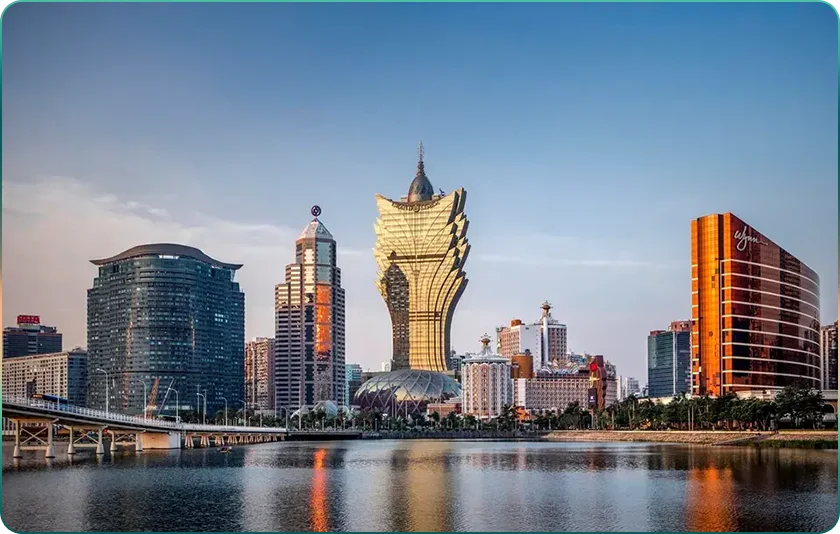China’s Gambling Reform - Balancing Regulation and Industry Growth

Once a wild frontier of fortune seekers, secret bets and soldiers playing dice, China's gambling landscape is undergoing considerable changes. As such, gambling in China has a multi-layered history. Ancient dynasties viewed it with suspicion, often imposing strict bans. However, the allure of gambling proved irresistible, manifesting in clandestine gambling houses and games of chance that have persisted through the centuries.
The 20th century saw a seismic shift with the establishment of Macau as a gambling haven, sanctioned and regulated under Portuguese rule. When Macau reverted to Chinese sovereignty in 1999, it retained its unique legal status, transforming into a booming casino paradise.
In recent years, Beijing has tightened the reins on the gambling industry. The Chinese government’s approach to gambling is complex, rooted in a desire to curb potential social harms while balancing economic interests. The latest wave of gambling regulations aiming to fortify this balance, reflects a broader trend of increasing state control over various sectors.
As such, the Chinese government’s stance on gambling stems from concerns about its potential social harms, including addiction, financial ruin, and related criminal activities. Consequently, the Criminal Law of the People's Republic of China imposes severe penalties on those who organise or participate in illegal gambling activities. Offenders can face substantial fines and imprisonment, with harsher penalties for those involved in large-scale or organised gambling operations.

China’s Digital Crackdown Hits Online Gambling
Macau’s casino industry, the jewel in China’s gambling crown, is experiencing significant regulatory overhauls. The government has introduced measures to increase oversight, including stricter licensing requirements and heightened scrutiny of junket operators, who traditionally acted as middlemen, bringing high-rollers to Macau’s casinos. These junket operators, long the lifeblood of Macau's VIP gambling sector, are now subject to rigorous financial scrutiny and compliance checks. This move aims to combat money laundering and ensure greater transparency.
The digital realm, once a grey area, is now firmly in the crosshairs of regulators. Online gambling sites targeting Chinese citizens, face a comprehensive crackdown. The government has employed sophisticated cyber tools to block access to these platforms and pursued legal actions against operators. This digital crackdown extends to proxy betting, where bets are placed through intermediaries in jurisdictions where gambling is legal, further tightening the net around illicit activities.
Online gambling, in particular, has been a major focus of regulatory enforcement. Despite the growing popularity of online casinos and betting platforms worldwide, China has implemented rigorous measures to block access to such sites and penalise those who engage in online gambling.
The government collaborates with internet service providers and technology companies to identify and shut down illegal gambling websites and restrict access to foreign gambling sites. Additionally, financial institutions are mandated to monitor and report suspicious transactions that may be linked to gambling activities.
State-run lotteries, the only legal form of gambling in mainland China, are also under review. Reforms aim to enhance transparency and integrity, addressing concerns over corruption and fraud. The government implements stricter auditing and monitoring processes, ensuring that lottery operations remain above board and revenues are appropriately channelled towards public welfare projects.
However, last December, the country was considered to rethink its policies regarding the gambling industry due to its technology giants losing billions, which appeared to affect the economy as a whole. Beijing was posed with the possibility of rethinking and possibly regulating some form of gambling; however, this made little progress.
It was also revealed that the National Press and Public Administration of China had published a new draft of gambling regulations, entitled ‘Measures for the Administration of Online Games’. This is still understood to be very much in the works and has attracted considerable commentary from government officials.
Economic and Social Implications
These regulatory changes are also rippling through the China’s gambling industry, with far-reaching economic and social implications. The desert sands of change are reshaping the landscape and creating new oases and mirages.
As the country grapples with regulatory challenges, other regions are eyeing opportunities. Rising Asian markets like, Vietnam and the Philippines gambling industry are expanding their positions, aiming to attract Chinese gamblers. These regional competitors, with more lenient regulations, are positioning themselves as alternative destinations for high-rollers, potentially siphoning off some of Macau’s clientele.
On the social front, the regulatory changes aim to mitigate the negative impacts of gambling. China’s stricter online gambling policies are intended to protect vulnerable populations, particularly the young and financially unstable, from the lure of easy money and subsequent debt traps. By curbing illegal gambling operations, the government hopes to reduce associated social ills, such as addiction and crime.
As a Special Administrative Region of China, Macau has long been known as the "Las Vegas of Asia." It boasts a vibrant casino sector that has been the cornerstone of its economy. However, the industry is evolving, influenced by regulatory changes, economic diversification efforts, technological advancements, and shifting consumer preferences.
One of the most significant factors influencing the future of Macau's gambling industry is the tightening regulatory environment. The Chinese government has implemented stricter anti-money laundering measures and increased scrutiny over capital outflows, directly impacting Macau's VIP gaming segment. Historically driven by high-roller patrons, this segment has seen some decline due to these policies.
Moving forward, Macau's casinos must adapt by focusing more on mass-market gamblers and broadening their appeal to a wider demographic. This shift will require strategic rethinking of marketing, service offerings, and customer experience.
Economic diversification is another crucial element in the future of Macau's casino market. The local government has been actively promoting non-gaming sectors, such as tourism, retail, and entertainment, to reduce the region's dependency on casino revenues.
Integrated resorts in Macau are increasingly incorporating non-gaming attractions, including luxury hotels, fine dining, shopping malls, and entertainment shows. These initiatives aim to create a more well-rounded tourism experience that can attract diverse visitors. In the long run, this diversification strategy is expected to stabilise Macau's economy and make it more resilient to fluctuations in the gaming sector.
Embracing Digital Innovation and Responsible Gaming
Technological advancements are also poised to play a significant role in the evolution of Macau's gaming industry. Integrating digital technologies, such as mobile gaming platforms, online betting, and virtual reality experiences, will likely become more prevalent. These innovations can enhance the customer experience, making it more engaging and convenient.
For example, mobile gaming platforms can attract younger, tech-savvy audiences who prefer the flexibility of playing games on their smartphones. Additionally, virtual reality can offer immersive gaming experiences that replicate the thrill of being in a physical casino. As these technologies advance, they will open up new avenues for growth and engagement in Macau's gambling market.
The global trend towards responsible gambling and increased awareness of gambling-related issues is another factor shaping the future of Macau. There is a growing emphasis on promoting responsible gambling practices and providing support for individuals affected by gambling addiction. Macau's casinos must implement robust, responsible gambling programs, including self-exclusion options, educational campaigns, and support services. Macau can enhance its reputation and appeal to a more conscientious clientele by fostering a safe and responsible gambling environment.
The future of Macau's gambling industry is also intertwined with broader geopolitical and economic trends. The ongoing trade tensions between the United States and China and potential economic slowdowns could impact the flow of tourists and capital to Macau.
Developing casino destinations in Asia, such as Singapore and the Philippines, also poses a challenge. As such, Macau must continuously innovate and differentiate itself as a premier gambling and entertainment location to remain competitive.
Macau's gambling industry will evolve over the next few years based on regulatory changes, economic diversification, technological advancements, and evolving consumer preferences. The shift towards mass-market gaming, the integration of non-gaming attractions, and the adoption of digital technologies will be key for sustaining growth and ensuring long-term viability.
By embracing these changes and addressing the challenges head-on, Macau can thrive as a leading global gambling hub while building a more resilient and diversified economy. The journey will require adaptability, innovation, and a commitment to creating a sustainable and responsible gambling environment.

Can China’s Gambling Industry Thrive?
As China’s regulatory winds blow, the future of the gambling industry remains intriguing. The shifting sands are creating a landscape that demands adaptability and foresight from stakeholders.
Casino operators in Macau and beyond must innovate to survive. Diversification is critical, with investments in integrated resorts that offer a blend of gambling, entertainment, and hospitality. Leveraging technology to enhance the customer experience while ensuring compliance with regulatory requirements will be crucial. For instance, advanced data analytics can help casinos understand customer behaviour and tailor offerings, while blockchain technology can enhance transparency and security in transactions.
Responsible gambling initiatives are gaining prominence. Operators are increasingly adopting measures to promote responsible gambling, such as self-exclusion programs, limit-setting tools, and support services for problem gamblers. These initiatives are both a regulatory requirement and a moral imperative, helping build a more sustainable and ethical gambling environment.
Strategic partnerships are becoming vital. Collaborations between casinos, technology providers, and regulators can foster a more robust and compliant industry. By working together, stakeholders can develop innovative solutions that address regulatory challenges while enhancing the overall customer experience.
The regulatory changes sweeping through China’s gambling industry are akin to the shifting sands of a desert, altering the landscape profoundly. While these changes present challenges, they also offer opportunities for growth, innovation, and sustainability. As the industry navigates this new terrain, those who adapt and embrace the evolving regulatory environment will find themselves at the forefront of a new era in gambling.





Review this Blog
Leave a Comment
User Comments
comments for China’s Gambling Reform - Balancing Regulation and Industry Growth